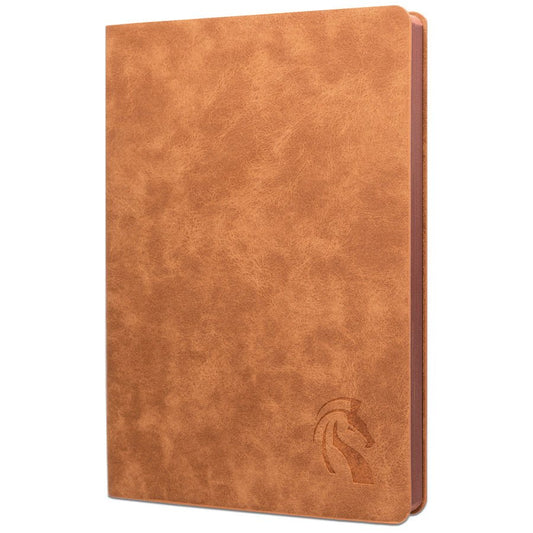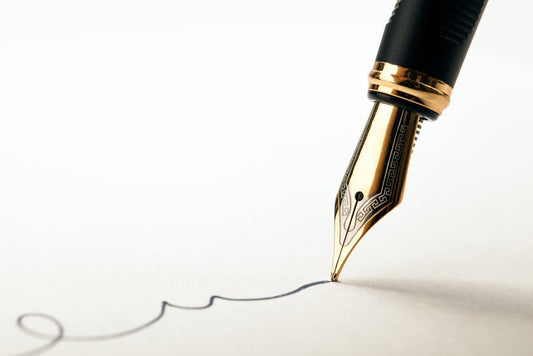
Have you ever kept a diary, whether it was as a method to document significant events in your life, while you were traveling, or as a tool to help you get through a difficult time in your life? Keeping a journal is beneficial for a variety of reasons. If you are a student, keeping a journal can help you not only do better in school, but it can also give you the self-assurance to tackle the problems that come your way in life. In this piece, we will explore the advantages of keeping a journal, as well as the various kinds of journals that you may use to improve your academic performance.
10 Advantages to Keeping a Personal Journal
One of the many benefits of keeping a journal is that it can assist you in lowering your stress levels and urge you forward in your pursuit of personal and academic development.

1. It's Beneficial to Your Mental Health
The simple act of putting pen to paper is one of life's simple joys that can also help you relax, deal with anxiety and depression1, and control anxiety (writing). You can obtain a deeper knowledge of the reasons for your own internal problems and the external obstacles you are encountering by putting your ideas down on paper and exploring both sets of issues simultaneously. Your challenges, anxieties, and concerns will rise to the surface, allowing you to begin addressing them and seeing ways to overcome them.
The use of humor can also be therapeutic. Because laughter has been shown to reduce feelings of stress, keeping a journal in which you relate the events of your life in a humorous way or capturing entertaining overheard parts of dialogue can help you feel less stressed.
2. Boosts One's Own Sense of Confidence
Keeping a journal might help you feel more confident in a variety of ways. You could discover that keeping a journal helps you keep your thoughts and calendar organized, which in turn lessens the amount of anxiety you feel. You can help convince yourself that you are a good and clever student by effectively managing your time so that you can routinely cross items off of your to-do list. This will make you feel more accomplished.
You may discover that being kind to yourself also helps your general relationship with yourself if you use your notebook as a place to actively practice positive self-talk and challenge negative thoughts.
3. Increases One's Capacity for Emotional Intelligence
Writing in a journal can assist you in making sense of how you are experiencing specific people or situations that are either bothering you or motivating you. Additionally, it might help you understand the factors that bring on your symptoms. Self-discovery is attainable through the process of putting down one's ideas while attempting to be as open and free from judgment as is humanly possible. When you take the time to get to know yourself better, you gain a greater understanding of your responses, your strengths and weaknesses, and the circumstances in which you are most likely to thrive.
4. Facilitates the Accomplishment of Objectives
how to establish SMART objectives.
The act of physically writing down a goal can make it feel more genuine, which in turn might drive you to work toward achieving it. Not only can you use your notebook to plan out particular objectives, but you can also use it to keep track of your advancement as you work toward achieving those objectives step by step.

Putting your goals down on paper in a SMART format will help you accomplish more. To accomplish a SMART goal, you must first document the ways in which your objective satisfies the following criteria:
Make sure your objective is crystal obvious by being as specific as you can.
Definable and measurable goals should be established.
Make sure that your objective is one that can actually be completed.
Relevant question to ask yourself is "how would I profit from reaching my goal?"
Time-bound: Determine a timetable for the project.
Make use of your notebook to keep track of where you are in the process of accomplishing your goals and to problem solve any obstacles that arise while you are working toward those goals.
5. It Encourages Creative Thinking
Keeping a journal is an excellent method for channeling your creative energy toward expressing yourself, lowering worry, and finding solutions to issues.
If you are the kind of person who is always having new ideas come to them, keeping a notebook is an excellent place to write them down as soon as they come to you so that you don't forget them. You can return to your notes at a later time and compose an entry that is more comprehensively centered on your idea.
You can try writing in a stream-of-consciousness style or utilizing thought-provoking questions to help fire your creativity if you are looking for inspiration. Both of these methods can be helpful. Some artists maintain a visual journalin which they draw or paint images based on their imagination or on real-world experiences, and some use visual journal prompts to help guide them.
6. Increases Memory Capacity
According to a number of studies, one of the most efficient ways to store knowledge in one's memory is to write it down by hand. You, as a student, are going to have to commit material to memory in order to do well on your tests. If you want to improve your memory, you might want to give some thought to including journaling into your daily routine.
If you write your thoughts, you will be able to readily return to your notes and be reminded of insights and goals that may have otherwise faded from your memory. This is an advantage that you will not have if you do not document your thoughts.
7. Strengthens One's Capacity for Critical Thinking an image of a notepad and a light bulb
Keeping a journal can assist improve your ability to think critically. According to the findings of a study that was recently published in the Journal of Nursing Education, reflective journaling was found to be beneficial for the development of critical thinking skills in both students and faculty.
8. Improves Academic Performance in General
According to the findings of some researchers, students who kept learning journals in which they tied the concepts they had learned to life events and real-world applications did better on standardized tests. Students have also acknowledged that engaging in expressive writing resulted in an increase in their overall grade point average.
9. It's Beneficial to Your Physical Health
It has been demonstrated that individuals struggling with a range of medical conditions can significantly benefit from engaging in expressive writing. In terms of one's own physical health, the benefits of expressive writing have been claimed to include an improvement in liver function, a reduction in blood pressure, an improvement in the functioning of the immune system, and an improvement in athletic performance. 3 It should come as no surprise that journaling can improve one's physical health in addition to their mental health.
 10. Improves One's Ability to Communicate Orally And In Writing
10. Improves One's Ability to Communicate Orally And In Writing
The act of writing down your ideas compels you to arrange them in a logical order. Because there is a strong relationship between writing and speaking, doing so can help you improve your communication skills in both written and vocal forms. 4 Keeping a journal can also increase your ability to write properly, specifically by helping you develop your voice and expanding your vocabulary.
Students Have Various Options for Journals to Choose From in Order to Develop
There are a wide variety of journals from which you can choose to keep one. You might find that one particular format feels more natural to you than others, depending on the kind of work you like to do and the personal goals you wish to accomplish. You can design a totally new method from scratch or merge two or more existing ones. The following is a list of several kinds of journals that can be used for both academic and personal development.
The usage of bulleted lists, as implemented in a bullet journal, is an effective way for both organizing one's life and monitoring one's progress. You may keep track of your goals, write to-do lists, and brainstorm ideas for projects using this diary.
Transfer diary: Whenever you acquire a new concept or piece of information in school, jot it down in your journal and think about how you might be able to apply (or "transfer") that knowledge in the future.
5 Ws diary: When you're attempting to grasp a real-life situation you're in, or when you're just trying to learn something new, it can be helpful to break down the information by the 5 Ws and keep a journal about it (who, what, when, where, why). You might even be able to commit the information to memory if you organize it using this method.
Keeping a gratitude notebook might help relieve some of the stress that comes with being a student. It is important to keep in mind the things for which you are grateful while you are experiencing feelings of being overwhelmed.
illustrated quote
A double-entry diary requires you to jot down a phrase or idea on the left-hand side of a page in your notebook, and then record your thoughts or reactions to that concept on the right-hand side of the page.

Question journal: Record any questions you have concerning the topics covered in class as well as any questions you have about yourself that you want to find the answers to. Come back to these pages as you continue your investigation and find more answers.
Keep a reading log in which you record your thoughts and observations regarding the texts required for classes as well as the books you read for personal enjoyment. Put into writing the thoughts that stand out to you and the facts that you wish to keep in your head. You will have a better chance of remembering what you have read and being able to draw from this information in the future if you write down your ideas and perspectives.
Idea notebook: Use your journal as a place to "brain dump." You will be better able to digest both your thoughts and feelings if you write down whatever it is that you are thinking or experiencing. It may be helpful to clear your head by writing down your thoughts in a stream-of-consciousness style.
Have a look at the image that follows to discover further kinds of journals, as well as some starting points to get you going.

LeStallion PU Leather Journals
LeStallion Soft Cover PU Leather Journals inspires and excites you to write more, allow you to further grow and develop, so you may achieve your goals and dreams!
SHOP LESTALLION













